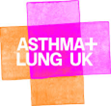The NHS is actively tackling medicine waste as part of its broader "Greener NHS" agenda, aiming to minimise the environmental impact. A key focus is on reducing carbon emissions from reducing unnecessary waste by 80%, reusing materials and processing waste efficiently, with a declared ambition to reach net zero carbon by 2040.
Trusts and Integrated Care Boards (ICBs) are required to develop ‘Green Plans’ to achieve the net zero target.
Please see the ICB weblink for more information on our Green Plans: Greener NHS - Lincolnshire ICB

______________________________________________________________________
Strategies to Reduce the Impact of Medicines on the Environment:
- Waste Minimisation - The NHS is encouraging trusts to improve segregation, minimise waste, proper disposal and increasing reuse programs
- Medicines management - Electronic Repeat Dispensing (eRD) helps to reduce overstocking and waste, proxy ordering in care homes allows for more controlled ordering and potentially reduces unnecessary medication, repeat medicines synchronisation prevents over-ordering and medication review provides an opportunity to reduce unnecessary medication
- Reducing Overprescribing - The NHS is also addressing overprescribing by reducing the number of medicines a person takes
- Lower Carbon Inhalers - The NHS is encouraging the use of lower carbon inhalers
______________________________________________________________________
Clean Air Day 2026 on the 18th of June
Click here for more information: Action for clean air by Global Action Plan

______________________________________________________________________
Resources for Clinicians
Greener Practice – UK's primary care sustainability network
Aims of Greener Practice
- To enable primary care to act on the climate and ecological emergency
- To provide a useful hub of information and resources such as the Asthma Toolkit (High Quality and Low Carbon Asthma Care – Greener Practice)
- To be a national voice for primary care on effective actions towards environmentally sustainable practice enabling the transition to net zero carbon general practice
- Provide events and webinars to inform clinicians

_____________________________________________________________________________________________________________________________
PrescQIPP Bulletin on Inhaler Carbon Footprint
- Inhaler carbon footprint data
- Tools for reviewing patients prescribed inhalers for asthma management - SystmOne and EMIS searches and step by step instructions on how to upload searches onto the GP clinical systems
- Audit spreadsheets
- Leaflets and posters
![]()
____________________________________________________________________________________________________________________________
NHS England Clinical Waste Strategy
The strategy is relevant to all waste types produced by NHS services with reference to sustainability and net zero carbon objectives.

______________________________________________________________________
Resources for Patients, Families and Carers
Patient decision aid on asthma inhalers and climate change
Developed by NICE, this decision aid helps to understand which types of inhalers contain a propellant that has a greenhouse gas effect, what is the impact of the propellant on climate change and why switching to a green inhaler is better for you and the environment.

_____________________________________________________________________________________________________________________________
UK Air Information Resources allows you learn more about air pollution in your area, provides recommendations and health advice. This may be useful if you, your loved one or someone you care for has asthma or another respiratory condition.

___________________________________________________________________________________________________________________________
How inhalers affect the environment
Webpage by Asthma & Lung UK for patients to find out about the impact of different inhalers on the environment.

___________________________________________________________________________________________________________________________
‘Wasted or unused medicine is a serious and growing problem within the NHS that you can help tackle. It is estimated that as much as £300million is wasted every year on unused or partially used medication.’


